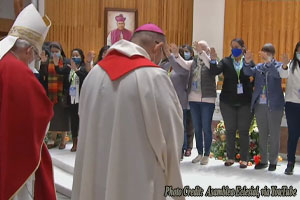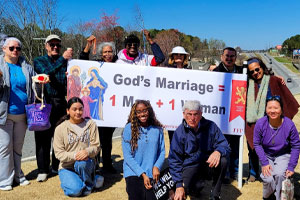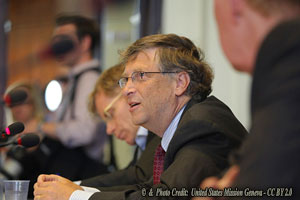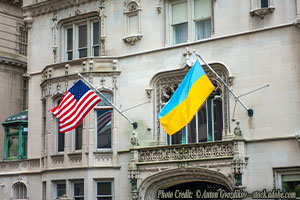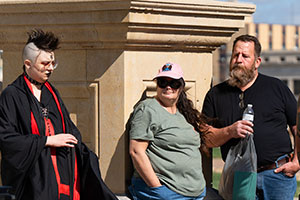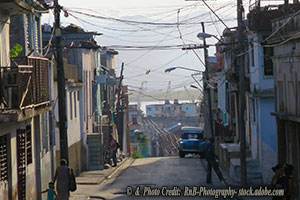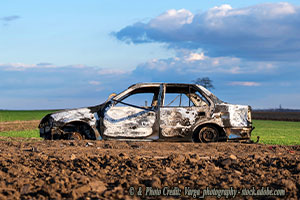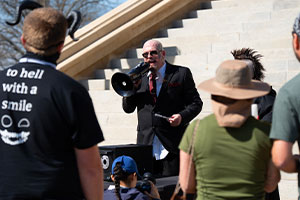Footnotes
- See Andrea Tornielli, “Cardinal Grech: A New Path to Help the Church Walk in a Synodal Style,” VaticanNews.va, Mar. 15, 2025, https://www.vaticannews.va/en/vatican-city/news/2025-03/grech-a-new-path-to-help-the-church-walk-in-a-synodal-style.html.
- See Gerald E. Murray, “Processes, Accompaniment, Implementation: Synodality Forever!” The Catholic Thing, Mar. 20, 2025, https://www.thecatholicthing.org/2025/03/20/processes-accompaniment-implementation-synodality-forever/.
- See Pedro Ricardo Barreto, S.J. and Mauricio López Oropeza, “The First Ecclesial Assembly of Latin America and the Caribbean: Experiences of a Synodal Process,” La Civiltà Cattolica, Feb. 21, 2022, https://www.laciviltacattolica.com/the-first-ecclesial-assembly-of-latin-america-and-the-caribbean-experiences-of-a-synodal-process/.
- Toward a Synodal Church Going Forth Into the Periphery: Reflections and Pastoral Proposals Drawn From the First Ecclesial Assembly for Latin America and the Caribbean, trans. María Luisa Valencia Duarte (Bogota: CELAM, 2022), 8, https://asambleaeclesial.lat/wp-content/uploads/2022/10/ingles.pdf.
- See Toward a Synodal Church, 15.
- Document for Community Discernment: At the First Ecclesiastical Assembly of Latin America and the Caribbean (Mexico City: CELAM, 2021), no. 1, p. 7 (ebook), accessed Apr. 8, 2025, https://synod.org.pl/wp-content/uploads/2022/10/ddc-angielski-amerykanski.pdf.
- Document for Community Discernment, no. 8, p. 11.
- The Second General Conference of the Latin American Episcopate, held in Medellin in 1968, was a milestone in the history of the Latin American Church. It emphasized the “preferential option for the poor,” in whose name bishops adopted a discourse influenced by Marxist categories, promoted a socio-political reading of the Gospel, and fostered an ecclesiology centered on class struggle and material liberation. In this, they weakened the supernatural dimension of the faith and favored revolutionary postures. Medellin opened the door to liberation theology, whose harmful effects included the politicization of the clergy and the migration of millions of lay Catholics to conservative evangelical sects.
- Document for Community Discernment, nos. 8, 9, pp. 11, 12.
- Document for Community Discernment, no. 9, p. 12.
- José Antonio Ureta and Julio Loredo de Izcue, The Synodal Process Is a Pandora’s Box: 100 Questions & Answers, trans. José A. Schelini (Spring Grove, Penn.: The American Society for the Defense of Tradition, Family, and Property, 2023), https://issuu.com/crusademagazine/docs/the_synodal_process_is_a_pandoras_box.
- Document for Community Discernment, nos. 5, 16, 18, pp. 16 and 18.
- Document for Community Discernment, nos. 30, 32, p. 24.
- Barreto and López, “The First Ecclesial Assembly.”
- Barreto and López.
- Comité de Escucha, Síntesis narrativa: La escucha en la 1era. Asamblea Eclesial para América Latina y el Caribe—CELAM—Voces del Pueblo de Dios, Sept. 21, 2021, https://diocesisdeirapuato.org/wp-content/uploads/2021/11/Sintesis-Narrativa-FINAL-1-1.pdf.
- In feminist theory, kyriarchy is a word coined by Elisabeth Schüssler Fiorenza in 1992. It describes her theory of interconnected, interacting, and self-extending systems of domination and submission, including sexism, racism, ableism, ageism (including adultism), antisemitism, homophobia, classism, economic injustice, colonialism, militarism, ethnocentrism, speciesism and other forms of dominating hierarchies in which the subordination of one person or group to another is internalized and institutionalized. See Wikipedia contributors, “Kyriarchy,” Wikipedia, The Free Encyclopedia, https://en.wikipedia.org/w/index.php?title=Kyriarchy&oldid=1277650420 (accessed April 8, 2025).
- “Un grupo de mujeres bendice a los obispos y sacerdotes en una misa,”
Infovaticana, Dec. 3, 2021, https://infovaticana.com/2021/12/03/un-grupo-de-mujeres-bendice-a-los-obispos-y-sacerdotes-en-una-misa/. - See “Un grupo de mujeres,” Infovaticana.





